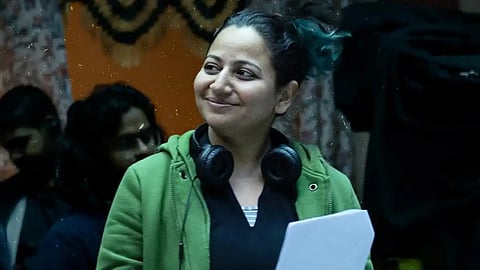

Dhadak 2 director Shazia Iqbal says her earliest cinematic influences were films like Deshpremi and Krantiveer, where characters such as Amitabh Bachchan sang about communal harmony and Nana Patekar delivered hard-hitting monologues on the unity of Hindu and Muslim identities.
With her feature debut Dhadak 2, a critically acclaimed film that confronts caste discrimination, Shazia said she wanted to tell a story rooted in that same spirit, whether inspired by commercial cinema with a social message or by auteurs such as Shyam Benegal, Saeed Mirza, and Hollywood directors like Spike Lee and Jordan Peele.
“You respond to what you've grown up with, and it doesn't matter if things have become superficial over the past 15 years. When I got the opportunity to make a film, I knew I wanted to take a particular path. I wanted to use the grammar of mainstream cinema to say something important,” Shazia told PTI.
The film, now streaming on Netflix after a successful theatrical run in August, uses the friendship and romance of two law students, played by Siddhant Chaturvedi and Triptii Dimri, to explore how deeply caste discrimination is embedded in everyday life.
“In the 90s, films like Deshpremi, Karma, and Krantiveer left a mark. When Nana Patekar gives his monologue, it hits you as a child. You are moved by Amitabh Bachchan singing about communal harmony. Society may show divisions, but these films leave a lasting impression,” she said.
Shazia added that she is inspired by filmmakers who challenge the status quo through cinema. “Directors like Shyam Benegal and Saeed Mirza in India, and Spike Lee and Jordan Peele in the West, use different genres to talk about what disturbs them. That’s the kind of storytelling I gravitate toward.”
Shazia, who studied architecture before turning to filmmaking, first gained recognition with her 2019 short film Bebaak. Initially approached as a director-for-hire for Dhadak 2, she eventually became involved in the writing process along with Rahul Badwelkar.
Somen Mishra from Dharma Productions had seen her short and shared it with producer Karan Johar. Both were impressed. “Karan said someone with a more sensitive lens was needed for the remake, because they were committed to tackling the identity issue head-on and not shying away from it.”
Shazia recalled that when Somen first sent her the original Tamil film, she was struck by its message but felt the adaptation needed her voice. “I couldn’t see myself in the film as it was. If I had to do a frame-by-frame remake, I may not have said yes. But I saw an opportunity to make it my own, which is why I said yes, and that’s the film you see.”
She emphasised authenticity in every aspect of the film, from the setting to the costumes. “If Siddhant’s character could afford a Rs 100 shirt, then that’s exactly what we made him wear. Since his character lives in a slum, we shot in an actual slum in Bheemnagar, Bhopal. Nothing was built on a set.”
Shazia, who describes herself as a private person, said the love and recognition the film has received has been overwhelming, and motivating. “It’s exciting. All this love is encouraging me to explore more such themes in my future projects.”